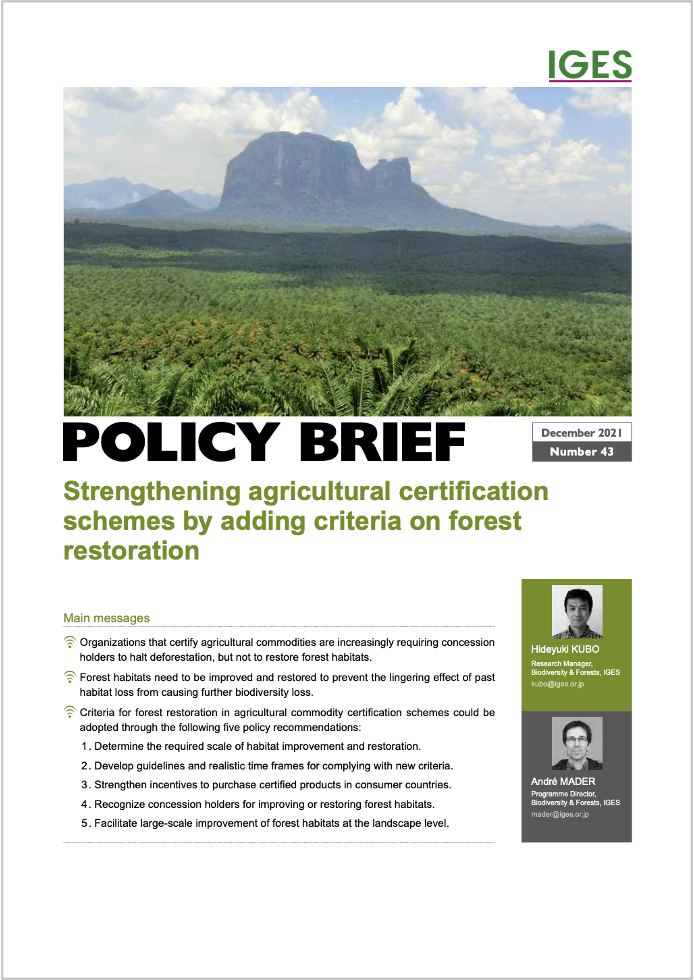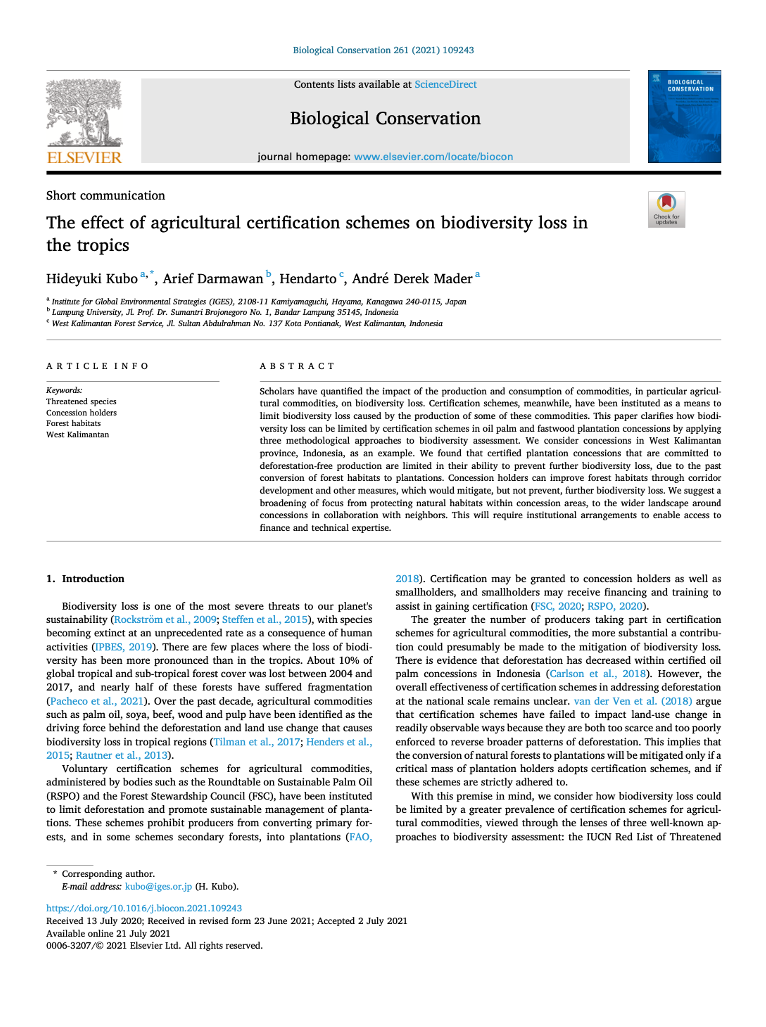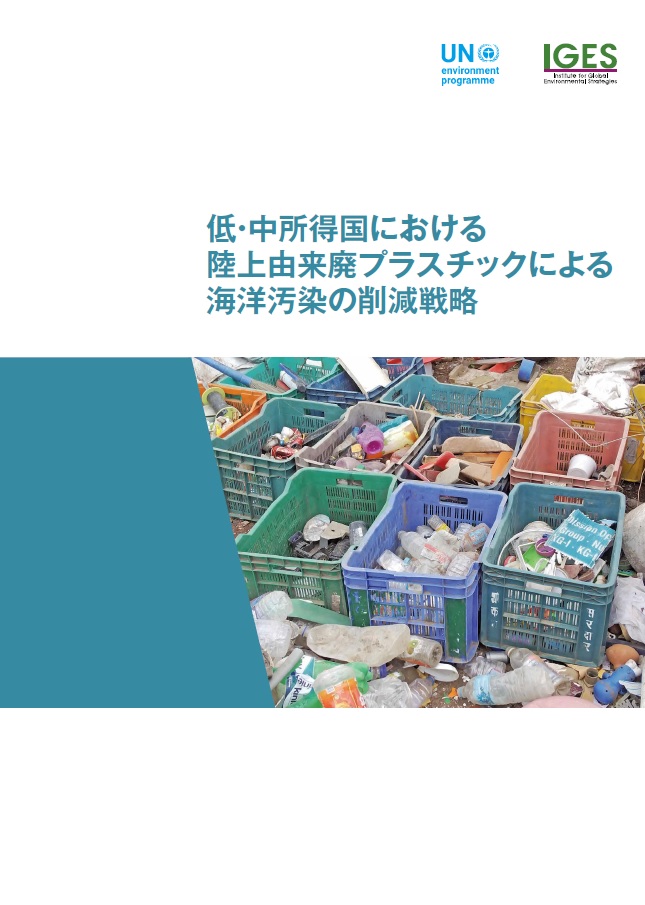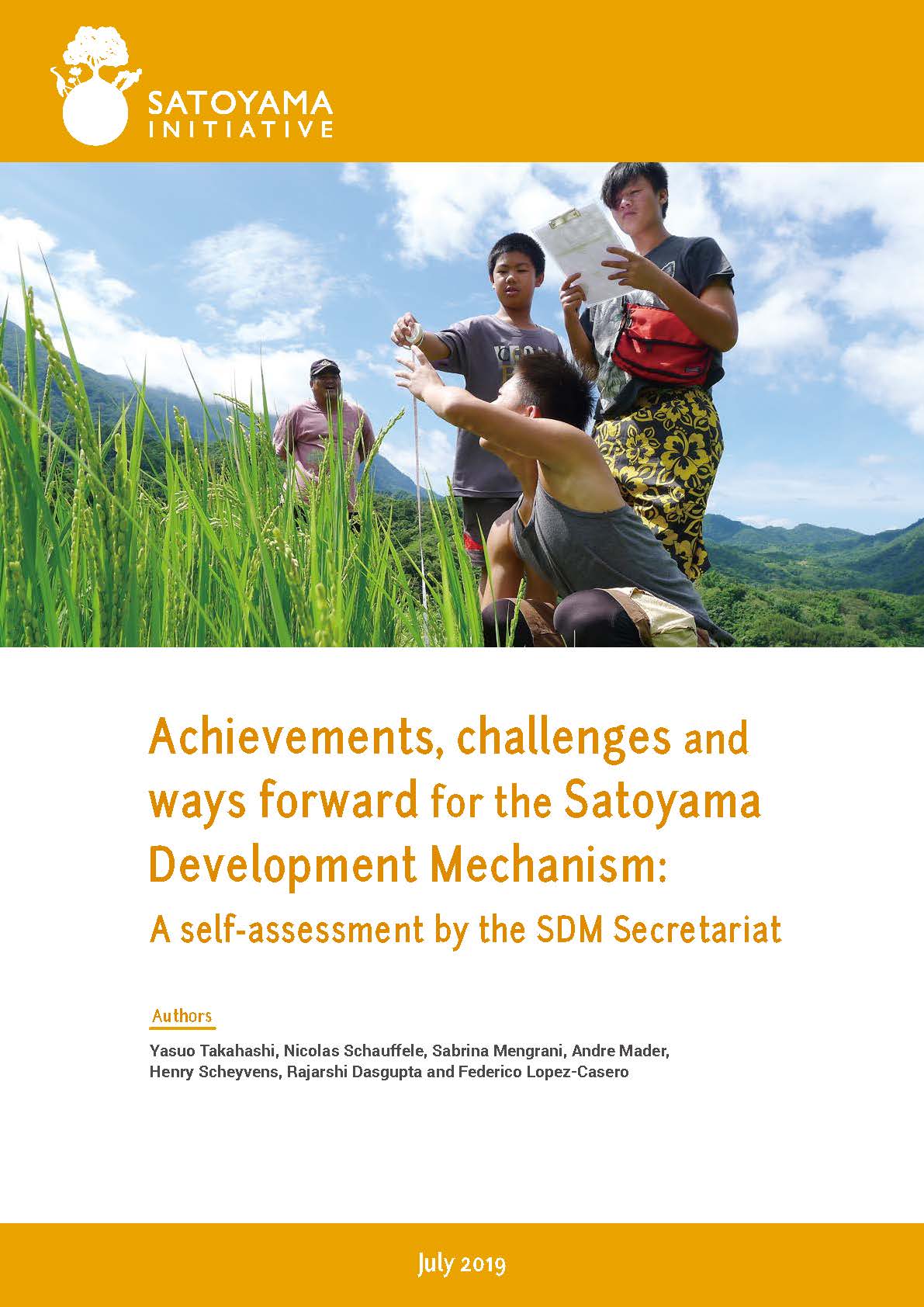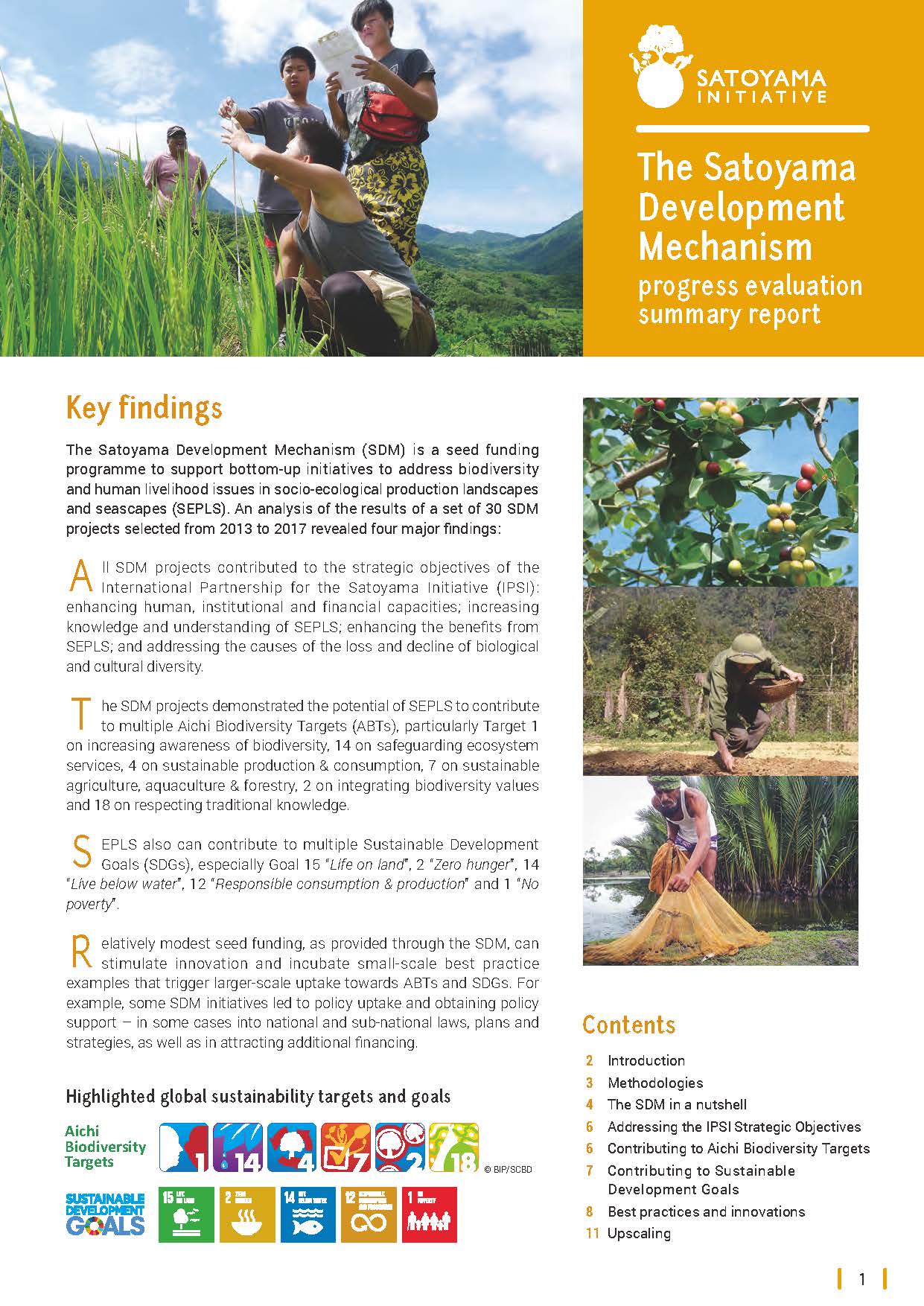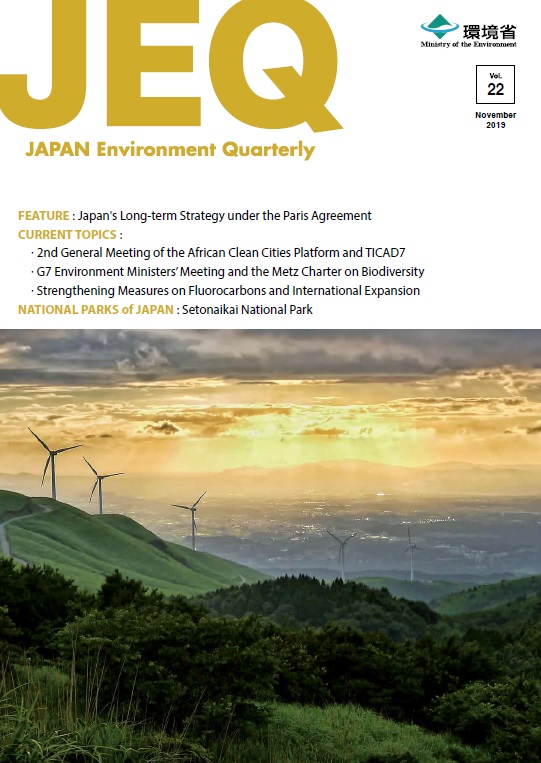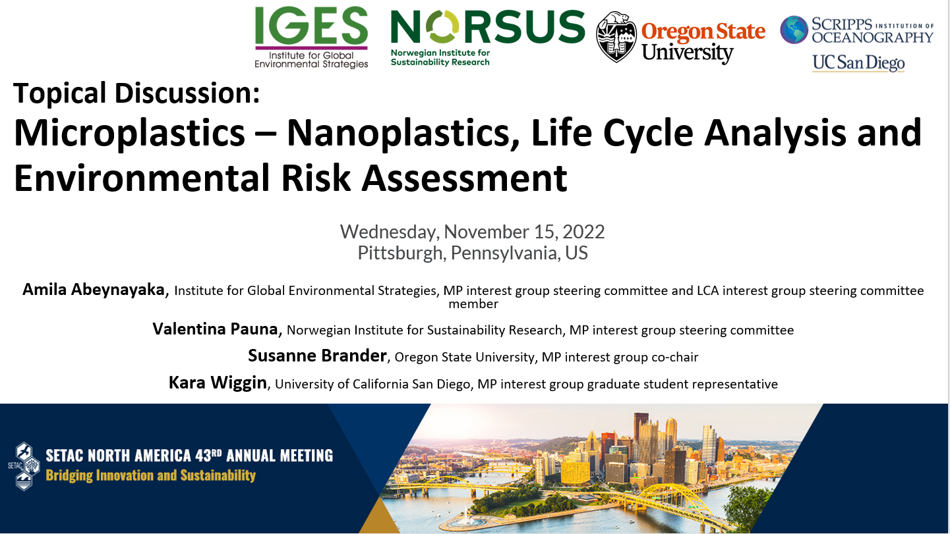Agricultural certification schemes are increasingly requiring concession holders to prevent deforestation when they develop plantations but do not sufficiently address forest restoration, which is necessary to prevent further biodiversity loss. This policy brief recommends, by focusing on palm oil, that agricultural certification schemes strengthen...
Keywords:

